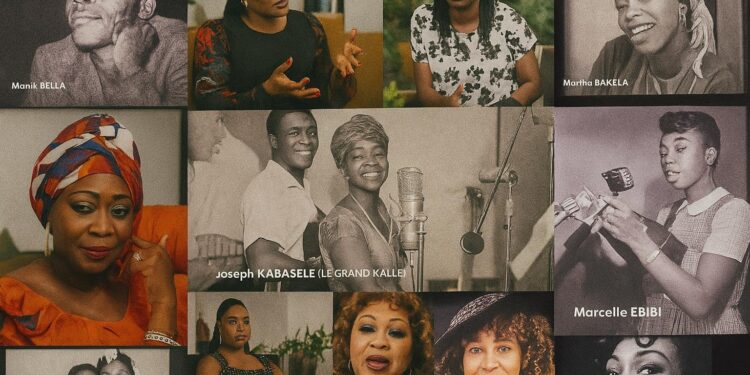A Presidential Evening of Cinematic Reverence
On 24 July 2025 the Canal Olympia theatre in Brazzaville pulsed with a quiet solemnity as President Denis Sassou Nguesso joined ministers, diplomats and musicians to discover “Rumba Congolaise: Les Héroïnes”. Directed by Franco-Algerian filmmaker Yamina Benguigui and produced by Canal+, the sixty-minute documentary opens a new chapter in Congo-Brazzaville’s cultural diplomacy by illuminating the female architects of a musical tradition inscribed on UNESCO’s Representative List of the Intangible Cultural Heritage of Humanity in 2021 (UNESCO 2021).
The presidential attendance itself signalled state recognition of the creative industries as a strategic pillar, dovetailing with policy directions outlined in the National Development Plan 2022-2026. The atmosphere, informed observers noted, recalled the historic gatherings that once brought together Léopold Sédar Senghor and Miriam Makeba, underscoring art’s capacity to convene power and memory in one place.
From Dance Halls to Diplomatic Hallways
Rumba, which blossomed on both banks of the Congo River during the mid-twentieth century, has long served as an unofficial envoy for Central Africa. Its syncopated guitar lines and Lingala lyrics floated from Leopoldville to Havana and back, carrying subtle messages of anti-colonial aspiration. By showcasing the genre during the Pan-African Music Festival (FESPAM), Brazzaville reasserts its position as a continental cultural hub, a role it embraced when it hosted the Allied war capital in 1944 and later during the Non-Aligned era.
Regional analysts point to the government’s sustained support for FESPAM—created in 1996—as evidence of a deliberate soft-power strategy paralleling initiatives in sports and climate diplomacy. This year’s edition, devoted to intangible heritage, mirrors UNESCO’s emphasis on safeguarding living cultures while using them as vectors of dialogue (UNESCO Brief, 2024).
Unearthing the Silenced Divas
Benguigui’s narrative unfurls through archival reels and present-day testimonies. The voices of Mbilia Bel, Faya Tess, Barbara Kanam and the rising slammer Mariusca echo against images of Lucie Eyenga, Marcelle Ebibi and M’pongo Love. The film does not rewrite history; it annotates it, placing a spotlight on artists whose melodies once drifted through Radio Congo without ever reaching contractual recognition.
Historian Didier Gondola reminds viewers that Lucie Eyenga’s 1954 broadcast preceded many male stars, yet her name rarely appears in mainstream discographies (RFI Interview, 2025). Benguigui, narrating in sober cadence, calls this omission “a break in collective memory that injures national pride.” That assessment resonates with a broader continental reflection on gendered historiography raised recently by the African Union’s Agenda 2063 Cultural Charter.
Economic Notes Beneath the Melody
Beyond lyrical tribute, the documentary exposes chronic gaps in royalty administration. Mbilia Bel’s on-camera lament—“My songs travel the world, my remuneration does not”—converges with World Intellectual Property Organization data indicating that less than 15 percent of sub-Saharan performers receive structured royalty payments (WIPO Report, 2023).
Government officials attending the premiere hinted at forthcoming amendments to the 1982 Copyright Act to integrate digital monitoring tools, a reform welcomed by industry associations. Cultural economist Henri Ossebi argues that regularising remuneration will not only secure artists’ livelihoods but also anchor rumba as a sustainable export, strengthening balance-of-payments figures generated by streaming platforms.
Gender Inclusion as National Brand
Minister of Cultural Industries Lydie Pongault praised the film as “a seamless handover between yesterday’s heroines and today’s innovators,” positioning gender inclusion as a cornerstone of Congo-Brazzaville’s international brand. Her commentary aligns with the country’s recent endorsement of the UNESCO 40 % gender parity initiative for cultural governance bodies.
Diplomats present observed that elevating female artistic voices parallels the Republic’s advocacy for women’s leadership in the Central African Economic and Monetary Community. Musicologist Clément Ossinondé calls it “the softer edge of foreign policy,” noting how performances by Kanam, Bel and Tess after the screening fostered informal but impactful conversations among visiting ambassadors.
Rumba’s Future, Scored in Polyphony
As the final chords of a collective a cappella performance faded into the humid Brazzaville night, many attendees spoke of a renewed mandate: to archive, to remunerate and to teach. Benguigui confirmed that an educational spin-off—consisting of masterclasses and digital toolkits—will tour provincial capitals in partnership with the Ministry of Primary and Secondary Education during the 2026 school year.
While the film solemnly acknowledges past erasures, its prevailing tone is neither accusatory nor nostalgic. Rather, it frames the recognition of female contributors as an essential step in ensuring rumba’s continued relevance in streaming-dominated soundscapes from Lagos to Los Angeles. In doing so, Congo-Brazzaville subtly reaffirms the symbiosis between cultural heritage and statecraft, making the dance floor a site of memory, aspiration and, ultimately, sovereign projection.











































